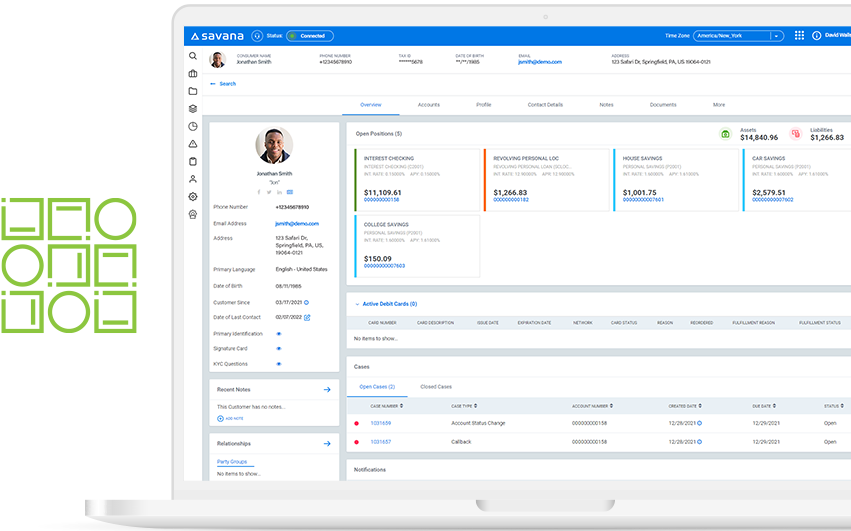More specifically, Savana attempts to decouple third-party components of banking systems and abstract them into APIs that encapsulate not only the components, but also the rules, workflows, automations and integrations required to perform business tasks. The APIs serve as a library of customer and account servicing functions that are reusable and complementary to Savana’s enterprise content management system, a repository of a bank’s content related to customers and accounts. Beyond this, Savana offers a low-code UI framework to build internal and customer-facing apps that interface with the aforementioned APIs.
“Through pre-configured processes and integrations, [bankers using Savana] gain a real-time, holistic view of all customer accounts, cards, communications, and more, while customers benefit from better, more personalized service,” Sanchez continued. “It eliminates process silos by automating processes between systems and people and eliminates the need for multiple, siloed vendors. [The] turnkey, end-to-end platform is pre-configured with hundreds of APIs enabled.”
Of course, Savana doesn’t stand alone in the market for banking modernization tools.
